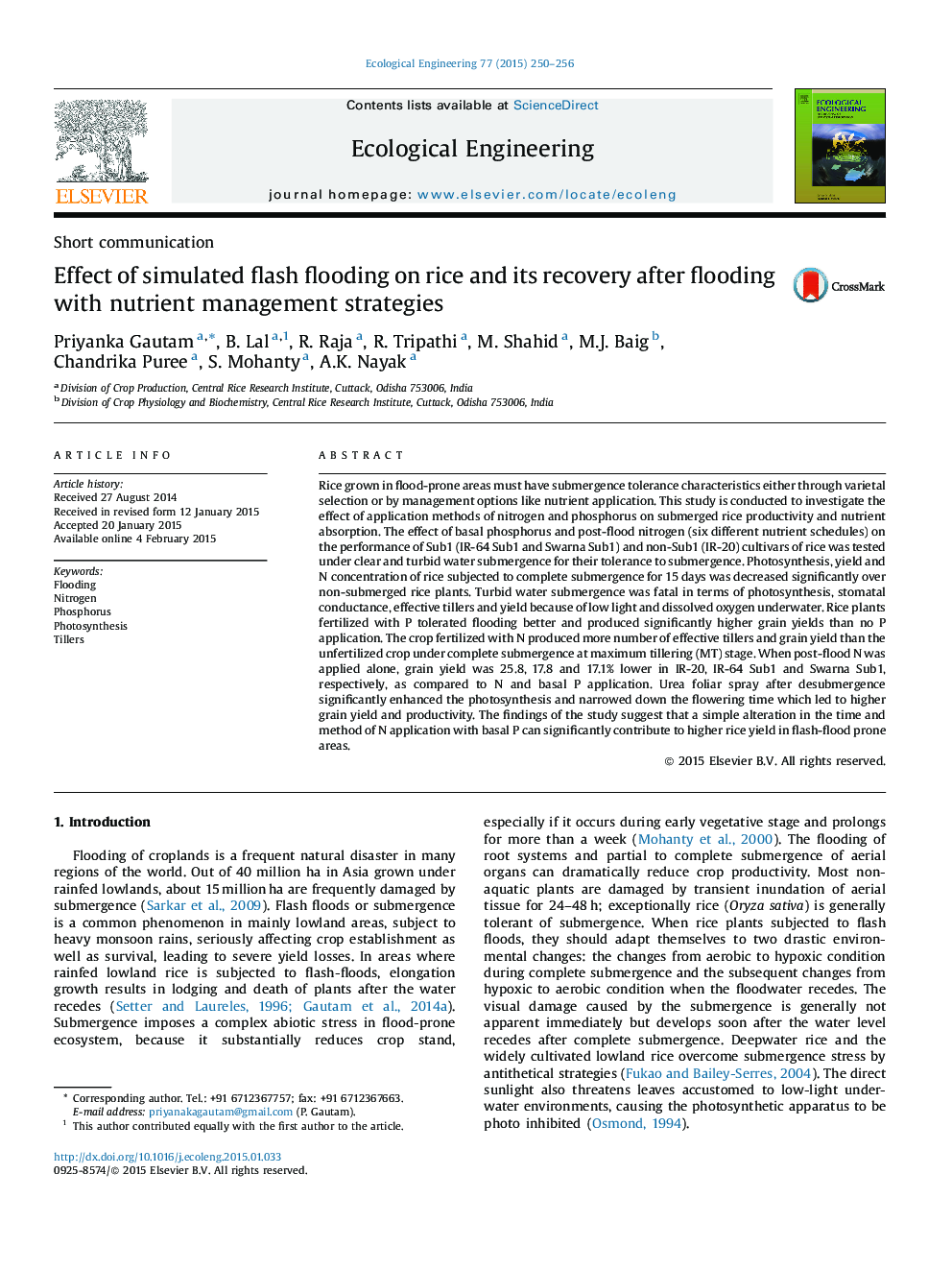| Article ID | Journal | Published Year | Pages | File Type |
|---|---|---|---|---|
| 4389271 | Ecological Engineering | 2015 | 7 Pages |
Abstract
Rice grown in flood-prone areas must have submergence tolerance characteristics either through varietal selection or by management options like nutrient application. This study is conducted to investigate the effect of application methods of nitrogen and phosphorus on submerged rice productivity and nutrient absorption. The effect of basal phosphorus and post-flood nitrogen (six different nutrient schedules) on the performance of Sub1 (IR-64 Sub1 and Swarna Sub1) and non-Sub1 (IR-20) cultivars of rice was tested under clear and turbid water submergence for their tolerance to submergence. Photosynthesis, yield and N concentration of rice subjected to complete submergence for 15 days was decreased significantly over non-submerged rice plants. Turbid water submergence was fatal in terms of photosynthesis, stomatal conductance, effective tillers and yield because of low light and dissolved oxygen underwater. Rice plants fertilized with P tolerated flooding better and produced significantly higher grain yields than no P application. The crop fertilized with N produced more number of effective tillers and grain yield than the unfertilized crop under complete submergence at maximum tillering (MT) stage. When post-flood N was applied alone, grain yield was 25.8, 17.8 and 17.1% lower in IR-20, IR-64 Sub1 and Swarna Sub1, respectively, as compared to N and basal P application. Urea foliar spray after desubmergence significantly enhanced the photosynthesis and narrowed down the flowering time which led to higher grain yield and productivity. The findings of the study suggest that a simple alteration in the time and method of N application with basal P can significantly contribute to higher rice yield in flash-flood prone areas.
Related Topics
Life Sciences
Agricultural and Biological Sciences
Ecology, Evolution, Behavior and Systematics
Authors
Priyanka Gautam, B. Lal, R. Raja, R. Tripathi, M. Shahid, M.J. Baig, Chandrika Puree, S. Mohanty, A.K. Nayak,
